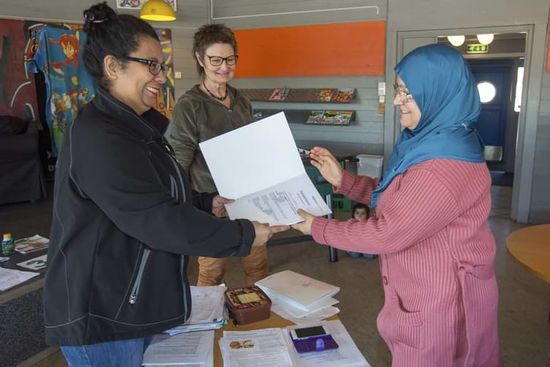
Access to responsive, people-centred health systems is essential to ensure appropriate health care for refugees and migrants throughout the process of migration and settlement. Focusing on intercultural competence and diversity sensitivity, this course contributes to a broader WHO strategy to develop an evidence-based response to the public health needs of refugees and migrants.
Language: English
English
Health topic
Course information
Overview: The course is aimed at health authorities at national, subnational and local levels, as well as health care practitioners, researchers, patients and caregivers. It provides:
- an accessible introduction to the key concepts underpinning intercultural competence and diversity sensitivity;
- an overview of the types of action that can be taken to improve health care at organizational, systemic, professional and individual health care provider levels;
- several case studies to examine methods and techniques that can be used to promote migrant participation at different stages of policy and practice; and
- an overview of factors to be considered in any initiative developed to promote intercultural competence and diversity sensitivity in health care.
Learning objectives: By the end of this course, participants should be able to:
explain the need for interculturally competent and diversity-sensitive health care;
explain the importance of education and training in intercultural competence;
recognize the importance of trained interpreters and intercultural mediators in health care; and
identify the practical and ethical issues affecting the migrant patients through community participation.
Course duration: Approximately 2 hours 20 minutes.
Certificates: Participants can gain a Record of Achievement by earning at least 80% on the final assessment. Participants who receive a Record of Achievement can also download an Open Badge for this course. Click here to learn how.
Course contents
Module 1 - Introduction:
By the end of this module, participants should be able to: discuss the challenges faced by health services due to migration of culturally diverse populations; explain the need for interculturally competent and diversity-sensitive health care; and define the key terms relating to heterogeneous groups mentioned in the toolkit.Module 2 - Intercultural Competence and Diversity Sensitivity:
By the end of this module, participants should be able to: define the key concepts related to cultural competence; explain why interculturally competent and diversity-sensitive health care is necessary; and describe the four-dimensional model for increasing intercultural competence and diversity sensitivity in the health sector.Module 3 - Health Sector Responses:
By the end of this module, participants should be able to: explain the importance of education and training in intercultural competence; recognize the importance of trained interpreters in health care; and identify the role of intercultural mediators.Module 4: Community Participation:
By the end of this module, participants should be able to: explain the importance of participatory approaches in health care; identify the practical and ethical issues affecting migrant patients through community participation; and identify and explain the tools used in different stages of health care.Module 5 - Key Questions for Policy-makers and Practitioners:
By the end of this module, participants should be able to: identify the key questions that need to be asked at different domains to work towards intercultural competence and diversity sensitivity.Final Assessment
Enroll me for this course
Certificate Requirements
- Gain a Record of Achievement by earning at least 80% of the maximum number of points from all graded assignments.
- Gain an Open Badge by completing the course.